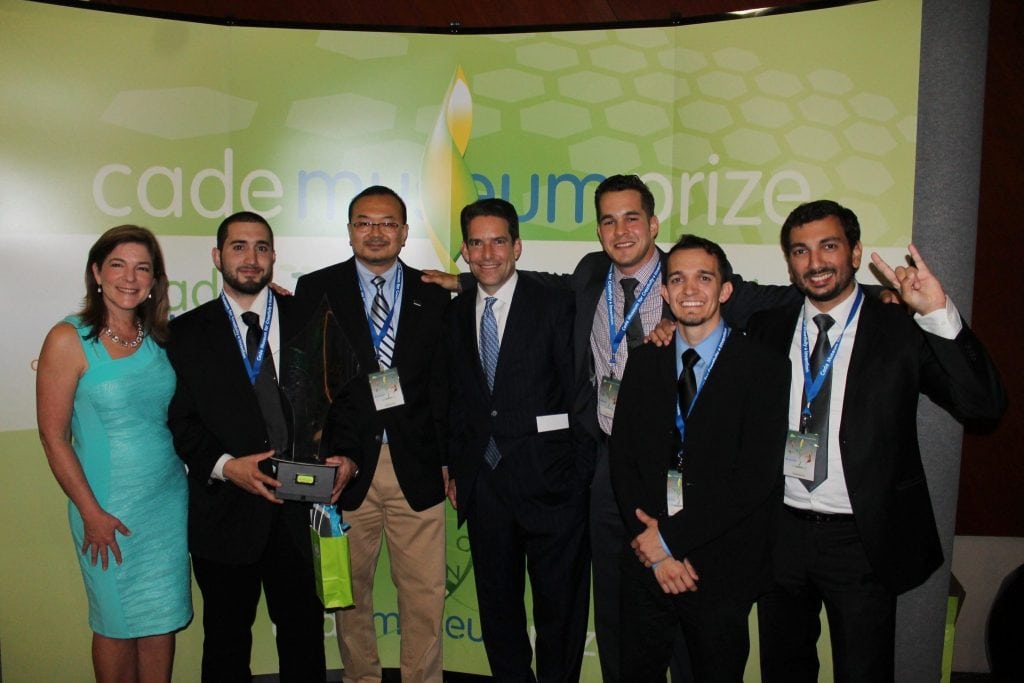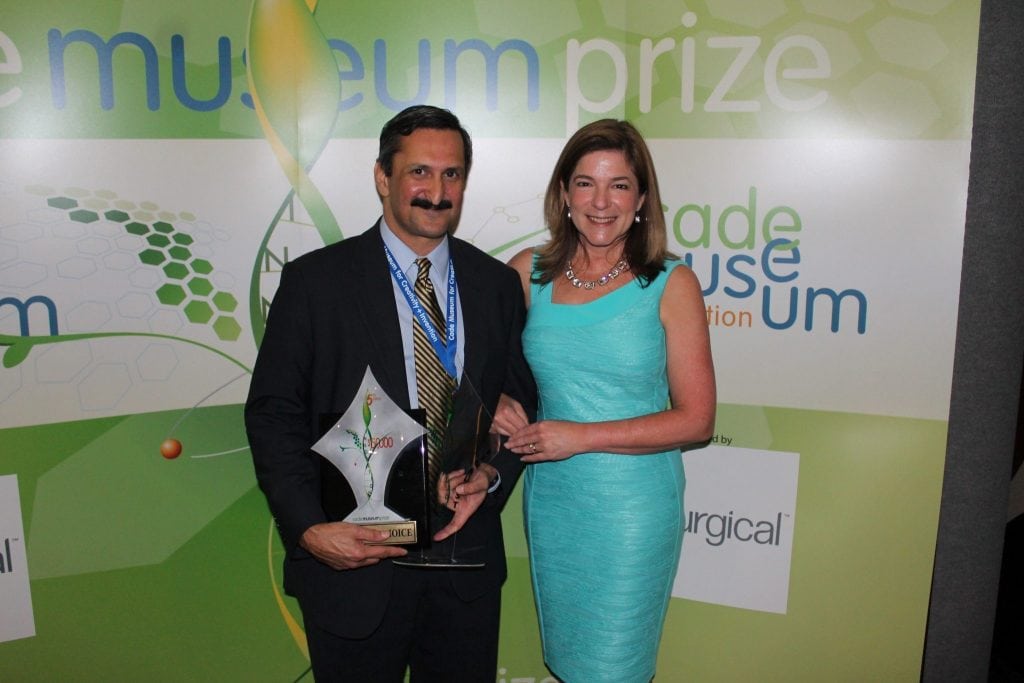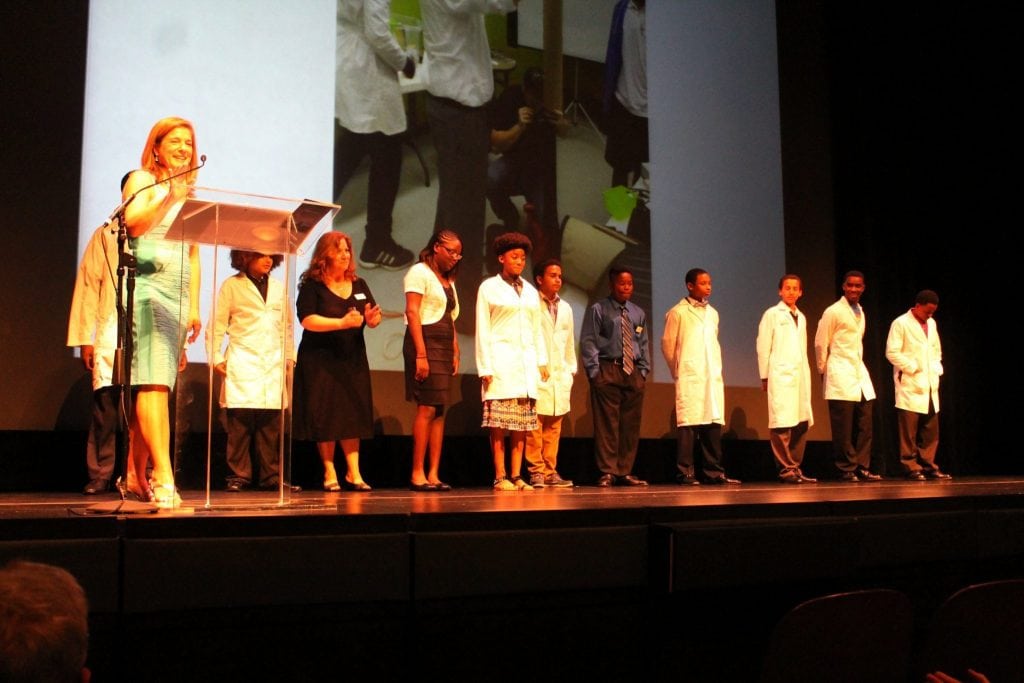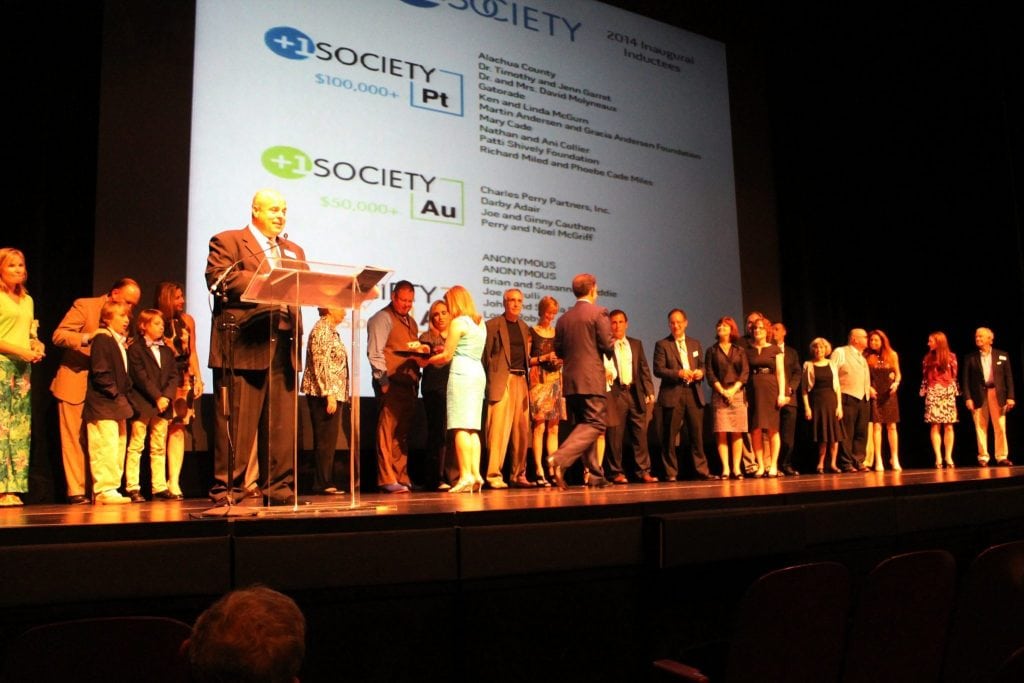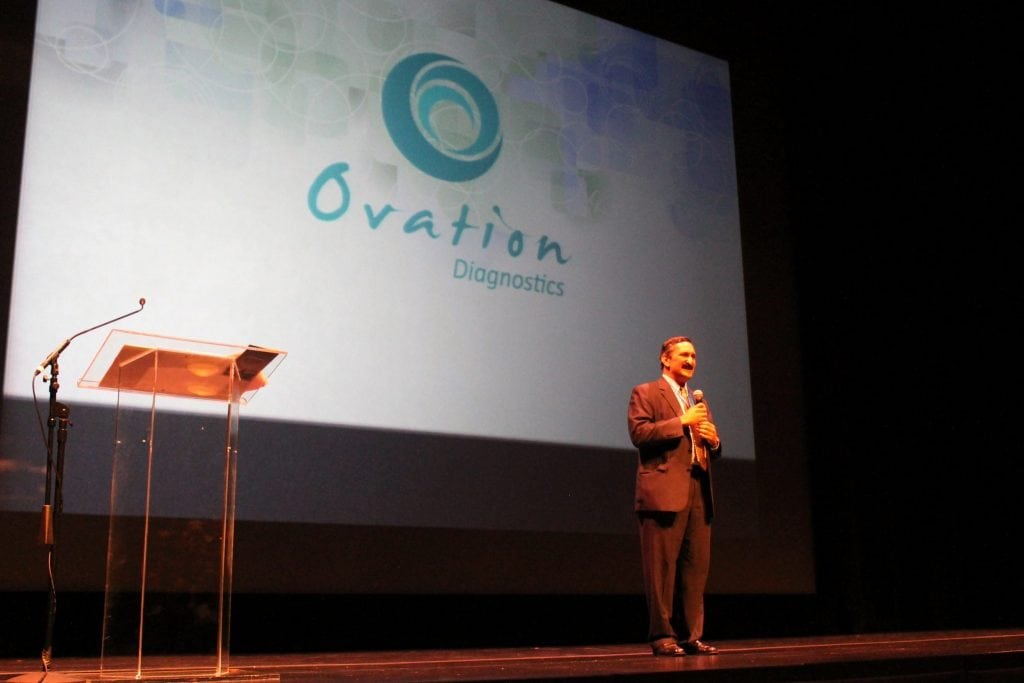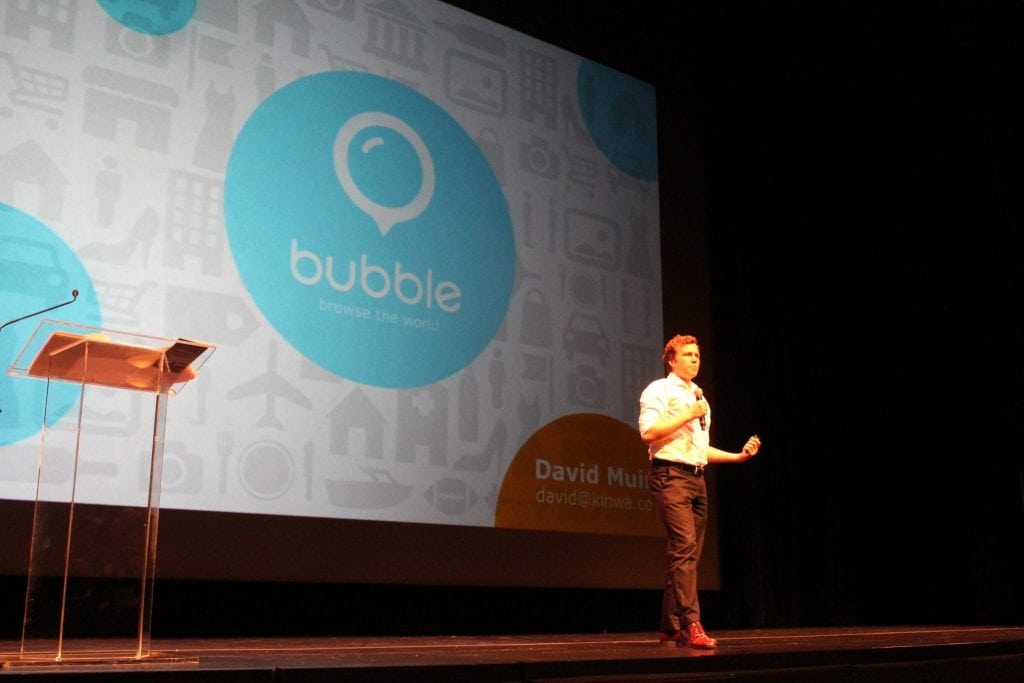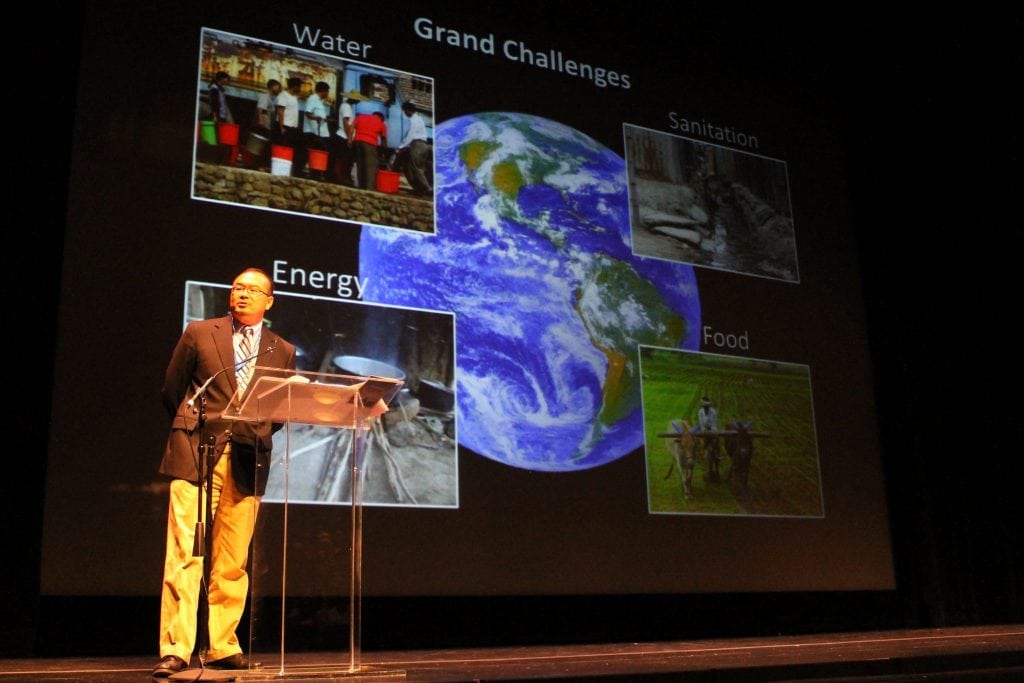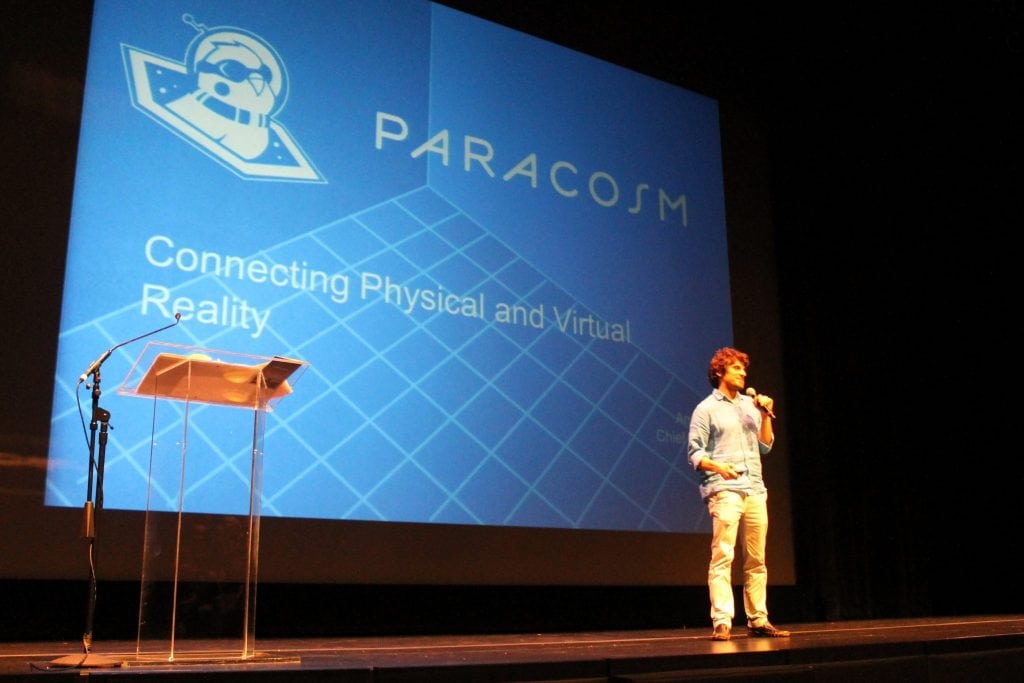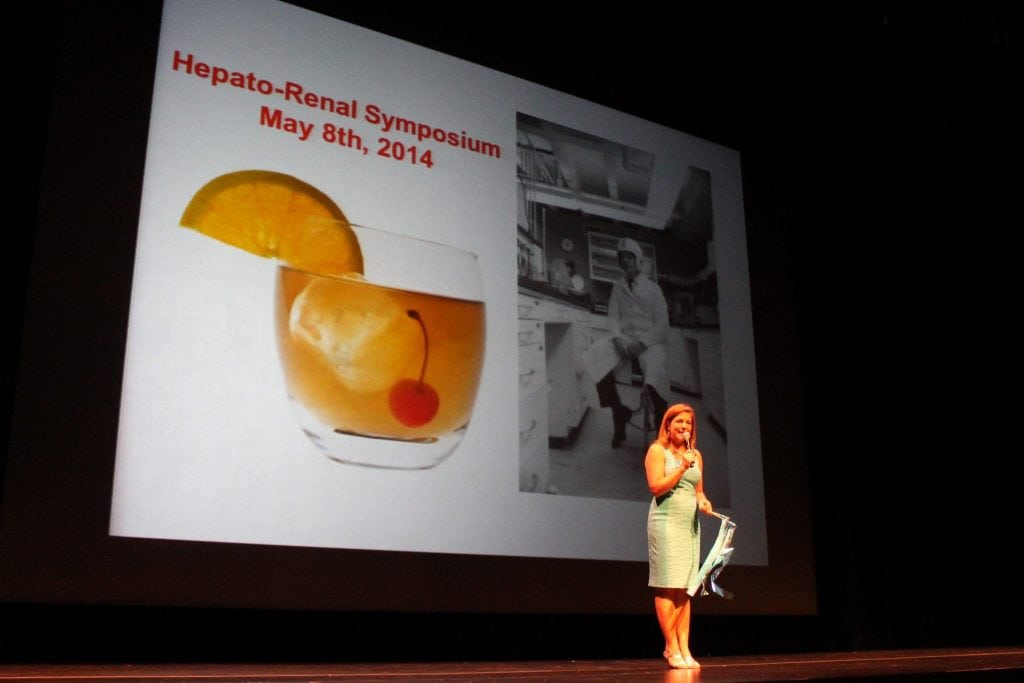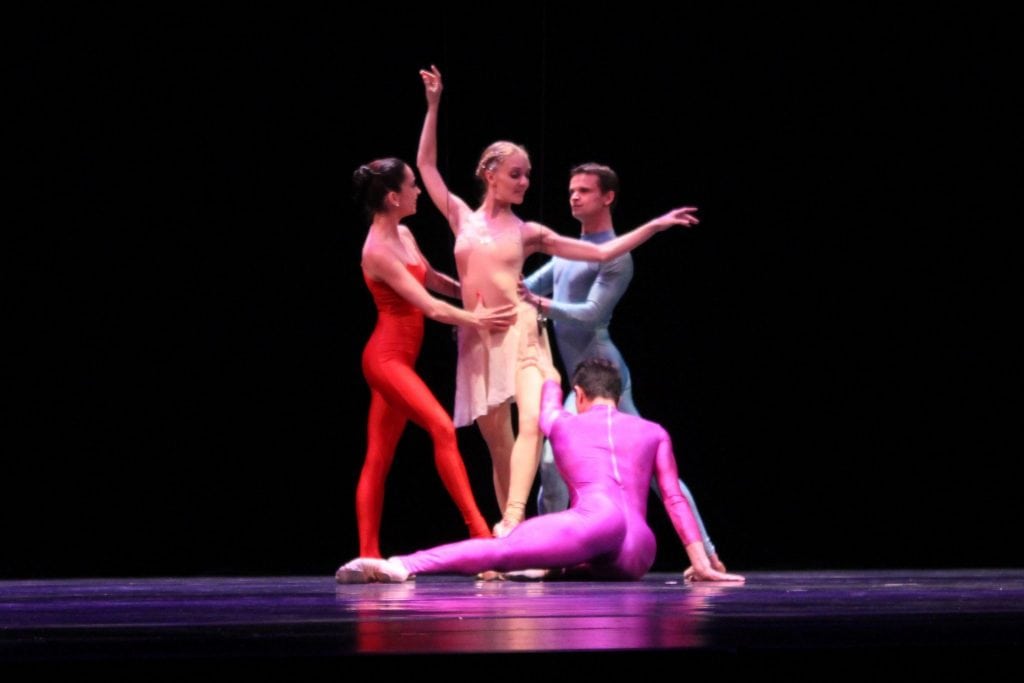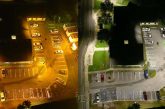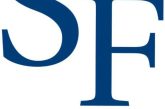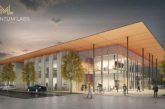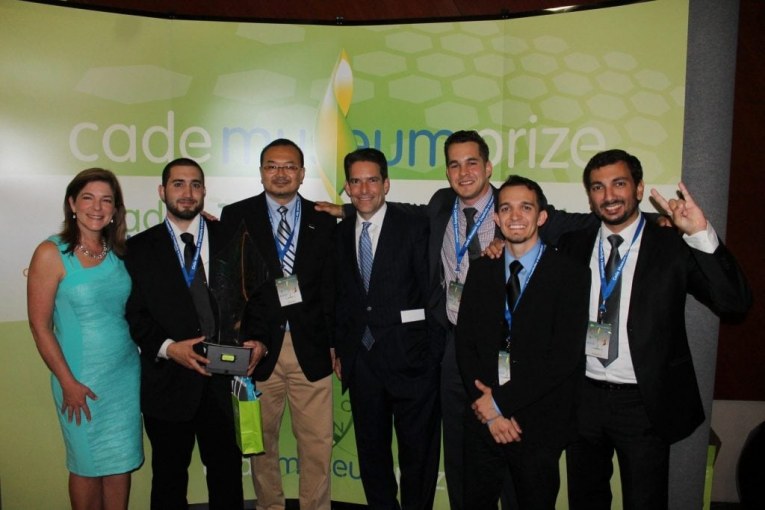
A small group of graduate students out of the University of South Florida led by associate professor Daniel Yeh took home the 5th Annual $50,000 Cade Museum Prize on May 8 at the Santa Fe College Fine Arts Hall after a night of company pitches, ballet and celebration spotlighting creativity in science.
The prize winners, BioReNEW, have developed a machine called the NEWgenerator that uses filtering systems and safe bacteria that digest waste to turn waste material into usable nutrients, clean water and energy off of the typical sewage and utility grid. The machine addresses what Yeh called the “grand challenges” of food production, safe sanitation, energy production and clean water, especially in the developing world.
“This has been a tremendous journey,” he said after accepting the award. “It could not have been made possible without our students working hard every day. Somebody has to do something about these grand challenges, and it might as well be us.”
The $50,000 prize, he said, will help BioReNEW complete research and development and launch a startup company. In the fall, BioReNEW will begin its first year-long field test in a partnership with the Indian government. Once that test is complete, the group plans to scale up based on the data they receive, and Yeh said that they are currently looking for manufacturing partners.
The research has already yielded two patents and two more are on the way, he said. The team hopes to be able to pitch to NASA about using the technology on potential missions to colonize Mars, since any astronauts on the red planet won’t be able to quickly receive new resources from Earth. The machine also has applications for future construction here on Earth as green buildings become more popular.
“Nature has a balance and humanity has disturbed it,” Yeh said, noting that in the wild, resources are recycled through natural processes while people have a tendency to use a resource once and then throw it away. “We’re trying to bring balance back into the system.”
Robert Bair, a lead Ph.D. researcher on the project and the future monitor for the India pilot program, said that its amazing to see research that he’s worked on for years become a viable product.
“A lot of research dies in the lab,” he said, “so it’s powerful to see it turn into a company. I want to see it grow and have a broad impact.”
The night also included presentations highlighting the Junior Cade Staff, who are grade-school students who have agreed to teach a class once a month at the Cade Museum, and the inaugural members of the +1 Society, who have collectively donated $3 million of the $9 million needed to construct the planned Cade Museum for Creativity and Innovation. Dance Alive National Ballet also performed a show demonstrating the physics of flight during the Hepato-Renal Symposium, a traditional part of the show that Cade Foundation President Phoebe Cade Miles borrowed from her father James Robert Cade’s (the inventor of Gatorade) weekly brainstorming and discussion sessions with other researchers over whiskey sours.
Cade Museum Foundation Board Vice President Richard Miles said that, in a sense, they were trying to help find the next Gatorade, which he said has been a benefit to more than just athletes as it has proven useful in helping solve infant digestion issues among other uses, by providing a cash infusion to early stage companies and helping to attract investors. He said that even companies who didn’t make it to the Final Four had received calls from interested investors because of the publicity that the competition brings.
Phoebe Cade Miles said that highlighting the achievements of Florida’s most creative researchers and getting eyes on their success was the driving force behind the competition.
“Sometimes inventors and entrepreneurs labor for years and nobody ever sees their work,” she said. “With this show we can shine a spotlight on them.”
The Final Four competitors included prize winner BioReNEW and:
Impact Medical Strategies – a company that has developed a unique urinary test to detect ovarian cancer utilizing a specific biomarker produced by the body. Ovarian cancer affects 140,000 women annually, and if doctors could detect its presence in Stage 1 then there is a 95 percent chance of survival. Impact Medical also took home the People’s Choice Award, a prize based on audience feedback to the final business pitches.
Kinwa – a Gainesville company that seeks to connect smartphone users to the world around them using the Bubble app and Beacon low-power transmitters. By placing Beacons in locations as varied as museums, homes, airports and offices, businesses and individuals give Bubble users access to immediate wireless information about their company, exhibits, food menus, videos and other pertinent information.
Paracosm – a Gainesville company that seeks to 3Dify the world by using 3D depth sensors to quickly scan a space and reproduce it digitally using Paracosm’s unique software. These digital representations have a wide variety of uses, ranging from retail applications to live building construction updates to video game development. Paracosm recently partnered with Google on Project Tango, a prototype phone that will use the company’s 3D software to one day allow every smartphone user to map the world around them.

